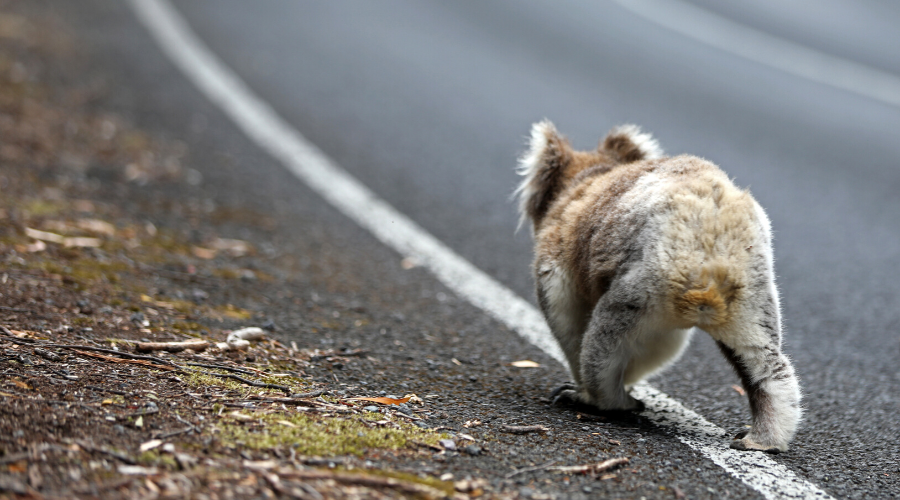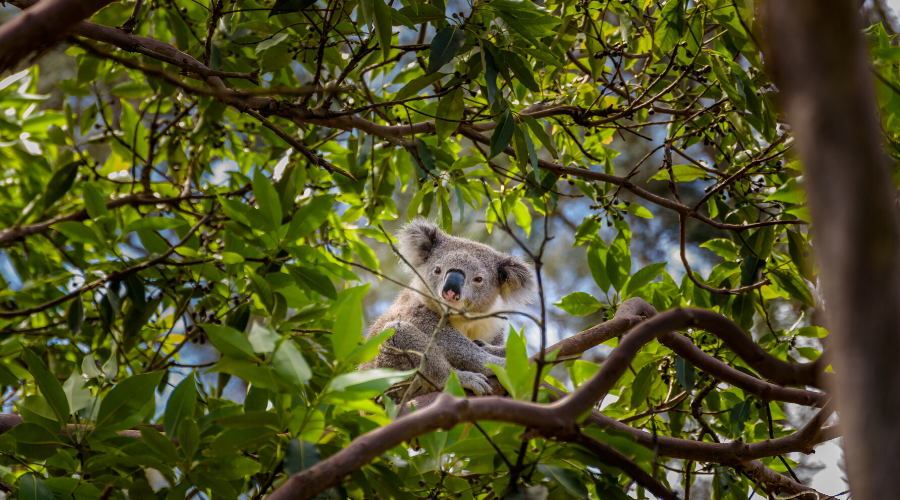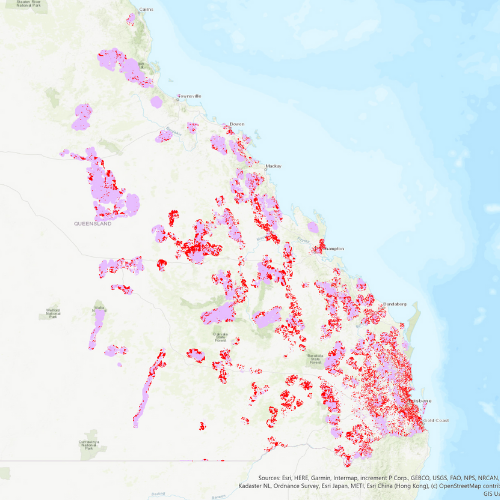News - 19 February 2020
A step in the right direction for SEQ's koalas

Koalas in South East Queensland (SEQ) are in big trouble. Populations have crashed by up to 80% in some regions over the past 20 years. The outlook is grim with these declines accelerating—remaining populations in Pine Rivers and the Koala Coast are now falling by over 10% every year.
Drastic action is needed to turn these trajectories around.
In late 2018, the Queensland Government appointed a Koala Advisory Council. This group has been responsible for helping to develop a Koala Conservation Strategy and hold the Government to account over the Strategy’s implementation. The Wilderness Society has been an active and outspoken member of the Advisory Council and pushed hard for stronger protections throughout the Strategy’s development.
In December 2019, the Queensland Government released a draft SEQ Koala Conservation Strategy for public comment and draft koala habitat mapping. This strategy provided a five-year framework to stop the long term decline of this iconic species.
Throughout 2019, our supporters have been saying loud and clear that they want the very best protections to save our beautiful koalas and we need them urgently before it is too late. They’ve:
- Stood up at community forums to demand urgent action on koalas from both state and federal MPs;
- Connected with like-minded koala carers, groups and advocates at community events;
- Bowed their heads over a koala memorial at Queensland Parliament House while 2,000 petition signatures were delivered to the government;
- Made their voices heard on the draft Strategy at government-run workshops and community information sessions; and
- In conjunction with the Queensland Conservation Council and Environmental Defenders Office, made over 3,400 submissions on the draft Strategy.
The message from the ground was undeniable—we want to give koalas the very best chance of surviving and thriving in SEQ for generations to come.
And the Queensland Government has listened—to a point. They have now released new legislation to back up the Strategy. Before, there were very few controls on developers bulldozing koala habitat in SEQ. Now, thanks to all the people demanding stronger protections, those rules have changed.
The good news

Thankfully, it is now a lot harder to bulldoze koala habitat.
- Generally speaking, huge areas inside Koala Priority Areas are now off limits to bulldozers. Developers that don’t clear but still restrict safe movements by koalas must now conform with consistent benchmarks and local governments are able to impose stronger regulations if they wish.
- Outside the Koala Priority Areas, there’s now a consistent approach to assessing koala impacts. Developers wanting to clear koala habitat will all now have their projects assessed by the state government.
- New, reduced thresholds now apply to people wanting to clear koala habitat through the self assessment process. If they want to clear more koala habitat than the threshold allows, they need to apply for a development application.
These are big steps forward for protecting koalas in SEQ.
The bad news
Unfortunately, some loopholes remain that would allow some koala habitat to continue to be bulldozed. Also, only landholders can apply to have the koala habitat mapping changed—there is no process for people to nominate new habitat to be added to the mapping.
Finally, the regulations and strategy rely on the current biodiversity offsets framework which is not delivering effective outcomes for nature - this needs an immediate overhaul. All of these points are disappointing and not acceptable, so we’ll keep pushing for these to be improved.
But, this is not just about SEQ. There are also loopholes in the statewide deforestation laws that allow koala habitat to be bulldozed at an alarming rate.

This is simply unacceptable. Our vision is for a Queensland that protects all our koala habitat, wherever it is, from deforestation. Together, we will keep standing up for what is right.
Australia’s federal laws are also failing koalas. This is especially true for koalas outside of SEQ which aren’t protected by the new regulations. The Environment Protection and Biodiversity Act is currently up for review and accepting public comments.
Overhauling these laws and bringing in an independent body to assess development applications could have a huge impact on koalas and all of nature.
Please make a submission today to tell the federal government that we need new nature laws that work.